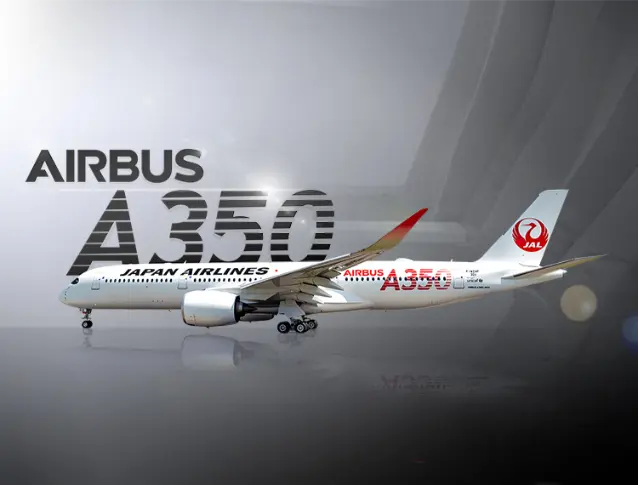Japan Airlines is set to revolutionize its air travel initiatives between Tokyo and the United States with the introduction of its new Airbus A350-1000 International aircraft. Starting January 24, 2024, passengers traveling on the Tokyo (Haneda) to New York (JFK) route will experience the cutting-edge features of the A350-1000 on flights JL006 and JL005. This marks a significant upgrade in the airline’s fleet, promising enhanced comfort and sustainability.

The second A350-1000 is anticipated to join the fleet by the end of Fiscal Year 2023, enabling daily operations of this state-of-the-art aircraft on the same routes. The arrival of a third aircraft will further expand JAL’s reach, introducing the A350-1000 to the Tokyo (Haneda) – Dallas Ft. Worth route.
Innovative Fleet Upgrade: Japan Airlines Introduces Airbus A350-1000
What sets the A350-1000 apart is its all-new cabin interiors, designed to maximize passenger comfort and relaxation. This aircraft is not just about luxury; it’s a leap forward in environmental responsibility. Boasting improved fuel efficiency and reduced noise levels compared to its predecessors, the A350-1000 aligns with JAL’s commitment to sustainability. A key feature is its capability to reduce CO2 emissions by 15-25%, a significant stride towards eco-friendly aviation.
Enhanced Passenger Experience and Sustainability with the A350-1000
In a groundbreaking initiative, JAL plans to substitute 1% of the onboard fuel with Sustainable Aviation Fuel (SAF) on flights bound for Japan. This move is aimed at further reducing CO2 emissions, underscoring the airline’s dedication to minimizing its environmental footprint.
The introduction of the A350-1000 signifies a major shift for Japan Airlines. The airline is phasing out its Boeing 777-300ERs, transitioning to a fleet that embodies both comfort and environmental efficiency. With 13 A350-1000s on order, JAL is at the forefront of adopting advanced, eco-friendly aviation technology.
Boeing Better Get on the (777x) Stick...
This transition to the Airbus A350-1000 highlights a significant trend in the aviation industry, with airlines increasingly opting for more environmentally sustainable and efficient aircraft. As the A350 gains popularity, its competitor, Boeing, is under pressure to accelerate the launch of its 777X. This development is crucial for Boeing to maintain its competitive edge in the market.
The aviation industry is witnessing a transformative era, where the focus is not only on enhancing passenger experience but also on embracing sustainable practices. The race to the skies between these two aviation giants is not just about technological advancement, but also about leading the charge towards a greener future in air travel.
